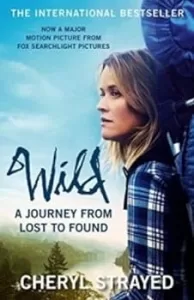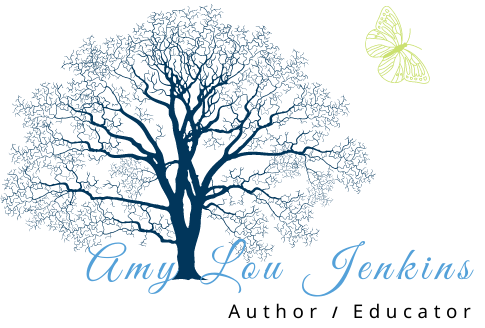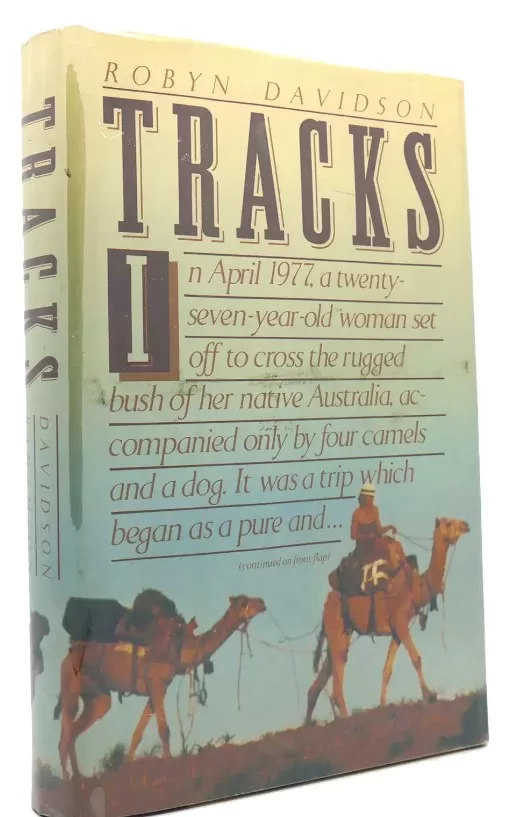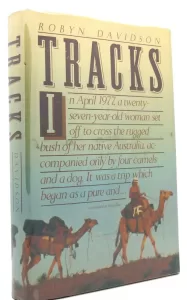Tracks: A Woman’s Solo Trek Across 1700 Miles of Australian Outback by Robyn Davidson, Knopf Doubleday Publishing Group, Vintage Departures Series, 2014, originally published by Pantheon Books (1980), 288p.
Before 'Wild' There Was "Tracks'
 At first pass, Tracks sounds like an Australian version of Cheryl Strayed’s Wild — but with camels: young woman traverses wild lands in a bid for transformation and redemption, and both Davidson and Strayed lost their mothers. But while Strayed’s memories of loss accompany her on the trek through the Pacific Crest trail, Davidson provides little reflection on her past, her losses and the motivations for her decision to take a few bucks and parlay it into some camels and all the equipment needed to cross 1,700 miles of desert.
At first pass, Tracks sounds like an Australian version of Cheryl Strayed’s Wild — but with camels: young woman traverses wild lands in a bid for transformation and redemption, and both Davidson and Strayed lost their mothers. But while Strayed’s memories of loss accompany her on the trek through the Pacific Crest trail, Davidson provides little reflection on her past, her losses and the motivations for her decision to take a few bucks and parlay it into some camels and all the equipment needed to cross 1,700 miles of desert.
Davidson begins: “I arrived in the Alice at five a.m. with a dog, six dollars and a small suitcase full of inappropriate clothes. ‘Bring a cardigan for the evenings,’ the brochure said. A freezing wind whipped grit down the platform, and I stood shivering, holding warm dog flesh, and wondering what foolishness had brought me to this eerie, empty train-station in the center of nowhere. I turned against the wind and saw the line of mountains ….”
 The Adventure of Memoir
The Adventure of Memoir
After two years and about 125 pages, the trek begins. Those years and pages are not lost, and they do not delay adventure. The time in Alice Springs layers a history of genocidal colonization and exploitation against Australian aboriginals. The time and place of preparation introduces Davidson and the reader to the complexity of the camel and the misogyny that often raises its head when a woman ventures forth without a man. Davidson wants to be alone. Even in the 1977 Australian Outback, she’s often dodging tourists, wild camels and even people she cares about. Davidson is judgmental and harsh as she considers others. she is just as harsh on herself. The only person who consistently enchants her is Mr. Eddy, the aboriginal elder who must accompany her across sacred lands.
Strayed’s Wild is internal and finds resolutions. Davidson’s journey is more external and sits within a complex worldview, as she considers the Australian native people and the two centuries of murderous wrong done to them and the land that they inhabit. Davidson does achieve some resolution in her self-imposed coming-of-age trial. She mires herself and the reader in lamentations of ongoing environmental loss, racial and sexual exploitation, and the emptiness of superficial and fast journeys. We fee her pain, and it doesn't resolve. Davidson isn’t always likable, but she’s about as real as any memoirist can be on the page. The words feel honest and the journey the reader takes is evocative.
Both ‘Wild ‘and ‘Tracks’ inspired movies based on these memoirs. These books, which share outdoor themes, invite memoirists and readers to inhabit adventures that reach inward and outward














